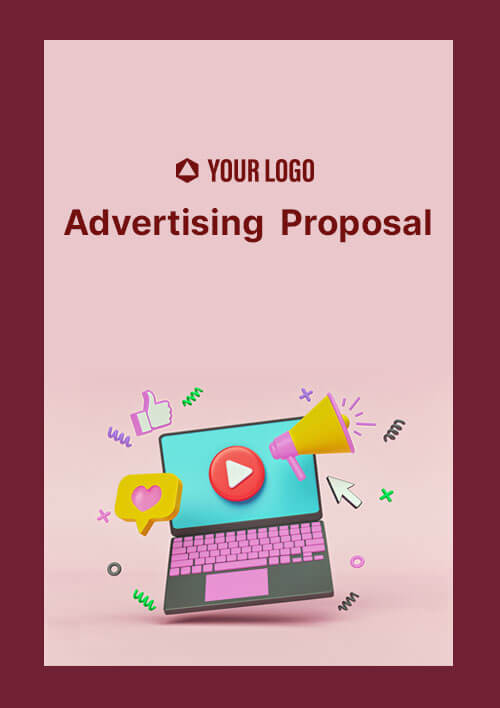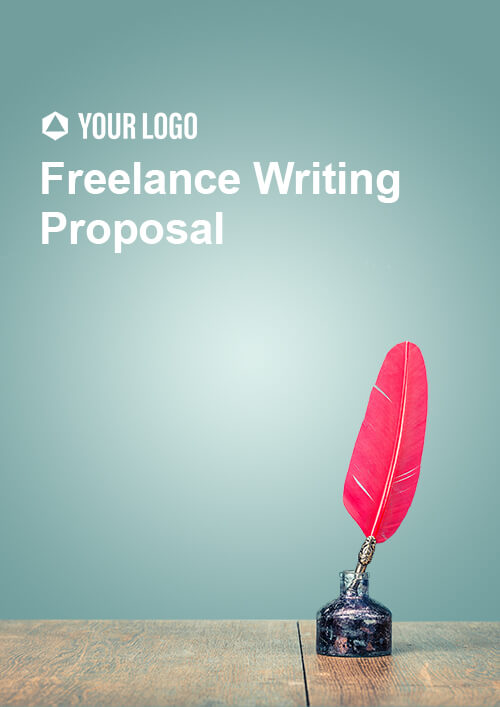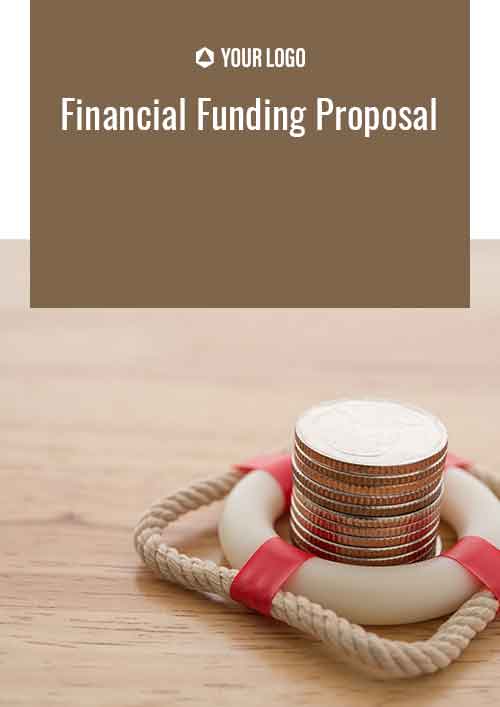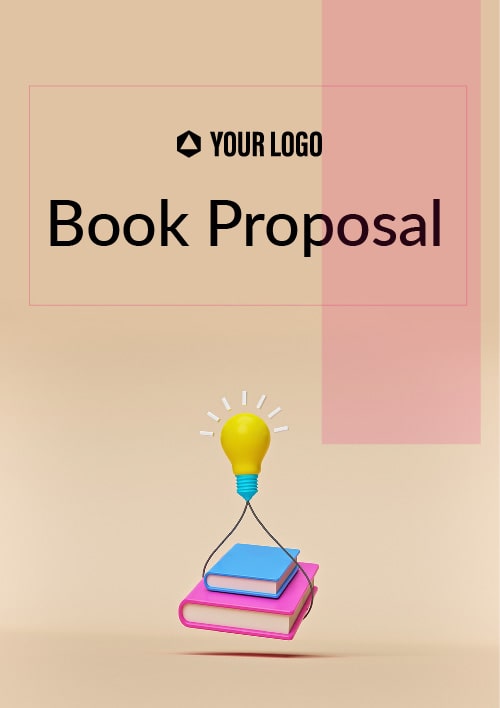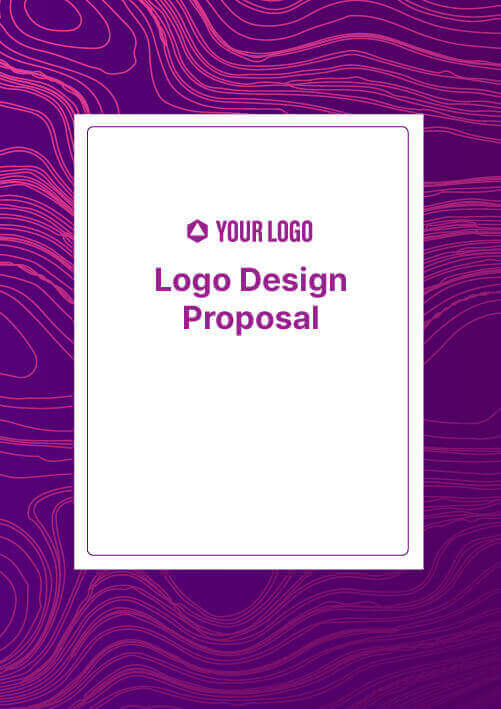Empty space
1x
2x
3x

Book Proposal
Empty space
1x
2x
3x
Prepared for:
[Publisher]
Prepared by:
[Author]
Book Proposal
Book Proposal
Overview
Overview
My book entitled [Book Title], is a [Genre of Book] work that [focuses/discusses] [on/about] the [crux of the book].
[You can think of this overview as the summary of the book that appears on the book's back cover. If it's fiction, an exciting summary will work. Give a brief summary of the book here like the era of time it talks about, characters, ideas, agenda, etc.
If it's non-fiction, add how the book will benefit the readers.]

Empty space
1x
2x
3x
Target Audience
Target Audience
The audience for the book is [define the characteristic of your audiences such as age, sex, education, and financial status].
[Define your primary and secondary audience]
[In a paragraph, explain the motivation behind them reading this book. How will this book help them?]
[You can also include affinity groups who are likely buyers of this book in large volume]
Empty space
1x
2x
3x
Manuscript
Manuscript
Here is the manuscript of the book:
1. Manuscript Status: The manuscript is currently [number of words] words, with [number of chapters] chapters completed and [number of chapters] chapters outlined.
2. Anticipated Length: The final manuscript will be approximately [number of words] words and [number of pages] pages.
3. Anticipated Completion Date: The final manuscript will be completed approximately [number of months] months after contract completion.
4. Special Features: [Here include personal stories, key messages, or, famous quotes included in the book]
Empty space
1x
2x
3x
Competitive Titles
Competitive Titles
[Provide the list of 3-4 books in this genre and show their thoughts/ideas presented in the book and how your book is different from them.
- Book Title, Author, Publisher, Publication Date, number of pages
- Analysis of the book and then show how your book is different from this
- Book Title, Author, Publisher, Publication Date, # of pages
- Analysis of the book and then show how your book is different from this]
Empty space
1x
2x
3x
About the Author
About the Author

In my [Time Period] of writing career, I have written and published about [Number] books and co-authored with several writers and groups such as [Mention who all you have worked with].
My writings usually revolve around the genre of [Book Genre] that are a popular read amongst [Audience age/category]. All my previous writings have done very well in the market.
Empty space
1x
2x
3x
Previous Sales
Previous Sales
Here is an overview of the performace of my previous books:
Book | [Book Name] | [Book Name] | [Book Name] |
Based on | [Brief Description] | [Brief Description] | [Brief Description] |
Primary Audience aimed at | [Age Group/ Reader Type] | [Age Group/ Reader Type] | [Age Group/ Reader Type] |
Published in | [Month, Year] | [Month, Year] | [Month, Year] |
Published by | [Publisher Name] | [Publisher Name] | [Publisher Name] |
Copies Sold within 6 months of publication | [Number] | [Number] | [Number] |
Copies Sold throughout the year | [Number] | [Number] | [Number] |
Empty space
1x
2x
3x
Past Awards and Recognition
Past Awards and Recognition
Here are the awards and accolades that I have been fortunate enough to be awarded with:
- [List the awards you received and for which book]
Empty space
1x
2x
3x
Testimonials
Testimonials
Here is what the readers and critics have to say about my previous books:
"[Testimonial 1] "
- [Name], [Designation]

"[Testimonial 2] "
- [Name], [Designation]

Empty space
1x
2x
3x
Marketing Plan
Marketing Plan
We can formulate a marketing strategy for the book with the following major information:
- Target Audience [Mention Age Group of Target Audience]
- Release of the book can be at the [Location] during [Time Period].
[Show your plan on how you're going to market and promote your book before and after publishing. Marketing activities may include social media marketing, email campaigns, book discussion groups, conferences, endorsement from authors or speakers, etc. You can address all these points in a bulleted format.]
Empty space
1x
2x
3x
Chapter-by-Chapter Synopsis
Chapter-by-Chapter Synopsis
[Chapter 1: Title of Chapter 1]
[Chapter 1: Title of Chapter 1]
[Chapter Summary]
[Chapter 2: Title of Chapter 2]
[Chapter 2: Title of Chapter 2]
[Chapter Summary]
Empty space
1x
2x
3x
Terms and Conditions
Terms and Conditions
- Relationship of Parties
- Upon acceptance of this proposal, [Author] and [Publisher] will enter into a contract that will define and govern their association. They will declare and undertake that there shall be no other relationship among them besides that defined by this proposal and the contract.
- This association and prospective Contract between the parties will be governed by and in accordance with the laws of [State].
- Confidentiality
- Upon receiving this proposal, the [Publisher] is hereby bound to not reveal or share the above-attached manuscript of [Book] and any other information in this proposal to anyone besides the relevant members of the Publisher's employees.
- All such employees are further bound to keep this information confidential and private.
- Intellectual Property Rights
- The copyrights and other intellectual property related to this book shall remain with [Author]. Upon acceptance of this proposal, [Author] and [Publisher] shall enter into a contract. As per the Contract, [Publisher] will be given limited publishing rights to publish [Book] for [Number] copies for a period of [Time Period].
- [Author] shall undertake to exclusively grant such publishing rights to [Publisher] for this time and the same shall be given to no other publisher before the expiry of this time.
- In all circumstances, including breach of this association by any party, the copyrights of the work of [Book] shall remain with [Author].
- [Publisher] shall not be permitted to further extend these publishing rights to any other party, except their team of employees.
- [Publisher] will be bound to publish the book as per the decided quality standards and permitted number of copies only.
- Termination
- Either party may terminate this Proposal by written notice to the other party. In case of breach of the terms and conditions herein by either party, the other party shall remedy the breach within [Number of Days] days upon receiving such notice of the breach.
- Failure to remedy the breach will lead to the termination of this proposal without prior notice.
- Payments
- All the transactions shall take place in USD through [Payment].
- [Author] shall reserve [0.00] % royalty out of the revenue generated from the sales of the copies of the books every year.
- This payment will be due within [Time Period] after the completion of the [Year/Month].
- Further details on payment and transactions can be discussed directly with the [Author] if the Publisher wishes to go ahead with this proposal.
Empty space
1x
2x
3x
Acceptance and Signature
Acceptance and Signature
If you wish to publish this book, please provide your acceptance by signing below:
[Publisher]
[Publisher Contact Details]
[Author]
[Author Contact Details]
Signature
Assign signer 1
Name
Assign signer 1
Date
Assign signer 1
Signature
Assign signer 2
Name
Assign signer 2
Date
Assign signer 2
Empty space
1x
2x
3x
THANK YOU
THANK YOU
Empty space
1x
2x
3x
DISCLAIMER: Revvsales, Inc is not a law firm. The content provided herein is for general information purposes only, and does not constitute legal advice. Revvsales, Inc and its partners make no representation or warranty of any kind, express or implied, regarding the accuracy, adequacy, validity, reliability, availability, or completeness of any information mentioned hereunder. The use or reliance of any information contained herein is for your personal use and solely at your own risk. You agree to fully release and indemnify Revvsales, Inc from any liability associated with the use of this content. You are advised to obtain independent legal advice before taking or refraining from any action on the basis of the content provided here.
DISCLAIMER: Revvsales, Inc is not a law firm. The content provided herein is for general information purposes only, and does not constitute legal advice. Revvsales, Inc and its partners make no representation or warranty of any kind, express or implied, regarding the accuracy, adequacy, validity, reliability, availability, or completeness of any information mentioned hereunder. The use or reliance of any information contained herein is for your personal use and solely at your own risk. You agree to fully release and indemnify Revvsales, Inc from any liability associated with the use of this content. You are advised to obtain independent legal advice before taking or refraining from any action on the basis of the content provided here.




